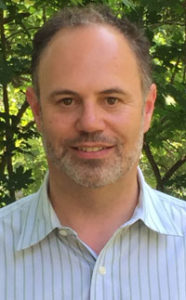Dear colleagues,
I hope this finds you well, or at least managing okay, during these continuingly perilous days. Contingency, uncertainty, mortality, alongside tentative returnings to, and reworkings of “before,” seem to be the order of the day.
Just a couple of weeks from now, on October 23 and 24, we have the opportunity to meet – in synchronous online fashion – for our second remote symposium in this most unusual year. Over the course of two full days, IARPP thought leaders from around the globe will address the theme, The Enemy Within and Without: Exclusion and Belonging in Intrapsychic, Interpersonal and Socio-Cultural Experience.
Five panels will address this theme in its different aspects: how we may come to live with integrity in the face of adversarial currents; how the relational perspective can aid in a clinician’s efforts to promote the capacity to grieve and mourn in times of destructiveness; how understanding group processes enhances our ability to work through both collective and personal conflicts; how the dynamics of hateful opposition and the oppression of the other are shaped by different contexts in different countries; and how we can best deal with the powerful dissociative effects that contemporary traumas can generate within patients and therapists alike.
There will be ample time for interaction among us all. Small subgroups, conducted in different languages, will follow the panels, facilitating opportunities for theoretical, clinical and person reflections and discussion for all members.
If you haven’t already done so, you can learn more about the symposium and register here: https://app.ce-go.com/iarpp-october-online-symposium
On to announcements of new books, papers and presentations by IARPP members.
Is technology a liberating force or a dangerous threat in human life? In answering this question, Richard Frankel (USA) and Victor J. Krebs (Peru) have introduced me to a new word, pharmakon, a philosophical and critical theory term, deriving from the Greek, meaning “at the same time both a remedy and a poison.” This concept lies at the center of their intriguing new study, Human Virtuality and Digital Life: Philosophical and Psychoanalytic Investigations, which reckons with the implications of what is being called our posthuman condition. They also consider our precipitous plunge into the virtual effected by the pandemic, just one way that virtuality and the digital are transforming our lives in these times.
Another new word is brought to my attention by Michael Korson (USA) in his paper, “Antinomies: Shared Trauma, Unequal Privilege and Psychoanalysis in the Time of Plague.” In his meditation on the staggering change wrought by the pandemic, in which the world is turned upside down, Korson turns to the concept of antinomies, “disparate and seemingly incompatible truths that exist simultaneously.” As one example, our shared trauma instantiates ways by which we are “in it together” and ways we are decidedly not. Psychoanalysis, Korson suggests, provides a framework in which to live in and speak of this strangeness together.
Alice Bar Nes (Israel) limns the ineffable in her exploration of mystical elements found at the core of psychoanalytic theory and practice. From Freud to Eigen, with visits to a number of seminal analytic thinkers in between, Psychoanalysis, Mysticism and the Problem of Epistemology: Defining the Indefinable elucidates the paradoxical braidings of practicality and “magical” facets in the “soul-to-soul” contact at the heart of the psychoanalytic project.
Mary Lynne Ellis’s (United Kingdom) chastening article charts the history, beginning in 1986, of sustained challenges by lesbians and gay psychoanalytic psychotherapists in the U.K. to the pathologizing of same sex sexualities in psychoanalytic theorizing and practices. She describes how, through public speaking, teaching, publishing, advocating, protesting and providing services in the face of stubborn heteronormativity, Ellis and her colleagues fought for and effected radical change in theory, practices and institutional structures.
Ruth Lijtmaer (USA) once again focuses her attention on immigration trauma and its sequelae in a series of presentations. She also essays the suppression of black and female expression by the white male hegemony in classical music, historically and in the current climate.
And Karen Maroda (USA)’s most recent book arrives, an in-depth examination of the impacts of the analyst’s early experiences and character on theory and technique. The Analyst’s Vulnerability: Impact on Theory and Practice promises to be a strong addition to the relational literature’s focus on the analyst’s subjectivity, with no shortage of opinions that challenge conventional analytic wisdom.
If you wish to share news of your latest books, papers and/or presentations with the IARPP community, please email me by Sunday, January 23, 2022, the deadline for next (February) issue of The IARPP Bookshelf. Kindly include the following with your submission:
- Title of your recent or upcoming publication or presentation
- An abstract or brief description of its content (around 150 words)
- Link to a publisher (if applicable) so that members might access or purchase a copy
- Book cover photo or artwork (if applicable)
- Digital photograph of yourself (jpeg format)
- Professional contact information as you would like it to appear publicly for our readers (city/town in which you practice or work; email address)
- Book authors: please provide a brief bio of 75-90 words.
Best wishes,
 Matt Aibel, LCSW
Matt Aibel, LCSW
New York and Northport, NY
Email Matt Aibel

